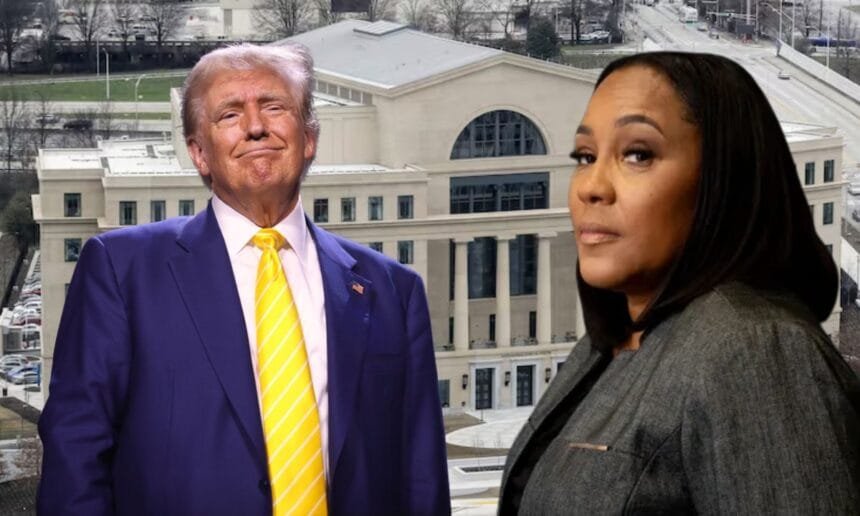The Georgia Court of Appeals made a major decision when it said that Fulton County District Attorney Fani Willis could not prosecute the high-profile crime case against President-elect Donald Trump and several of his supporters.
The case is mostly about accusations of crime and attempts to change the results of the 2020 presidential election in Georgia.
In a detailed 31-page opinion, the court explained its decision. This shows how hard it is to balance law ethics with how people see justice.
The Decision and Its Rationale
All three judges on the appellate court agreed that Willis had to be fired because of a “appearance of impropriety” related to her personal friendship with Nathan Wade, the special prosecutor she hired for the case.
The judges made it clear that while these kinds of shows don’t usually lead to disqualification, this was an unusual case.
“Disqualification is required,” the court said in its opinion. “No other remedy will suffice to restore public confidence in the integrity of these proceedings.”
This decision goes against what Fulton County Superior Court Judge Scott McAfee said before. He had turned down moves to disqualify Willis even though he saw signs of wrongdoing.
McAfee’s decision let Willis stay on the case after Wade quit, but the appeal court thought this wasn’t enough of a fix.
The Backstory
The people who were defending Trump said that Willis’s friendship with Wade made him have a conflict of interest. They said that Willis made money from the connection because Wade paid for vacations and other costs for her.
Defense lawyers said this made it harder for Willis to use fair judgment when choosing who to pursue and what charges to bring.
These claims were at the heart of the appeal. The lawyers for Trump said that the look of bias hurt public trust and put their clients’ right to a fair trial at risk.
Impact on the Case
The appellate court’s decision does not throw out the crime charges against Trump and the other people charged with him, but it does raise important questions about the future of the case.
To keep the case going, a new special prosecutor who is not connected to Fulton County will need to be chosen.
This process could make the trial take even longer, and some lawyers think it might even make it more likely that the case will be dropped completely.
Getting rid of Willis, who has been a strong supporter of pressing the charges, could slow down the trial.
Political and Legal Ramifications
The decision is a big win for Trump and his supporters, who have been trying to stop the case for a long time.
Trump’s lawyers were thrilled with the decision because it proved their claims that the prosecution was tainted.
Steve Sadow, Trump’s main lawyer in Georgia, has also brought up the idea of delaying the trial until after Trump’s term ends if he wins the election again. He said, “Under the supremacy clause, this trial would not happen until after he leaves office.”
The case has gotten a lot of interest across the country, both for what it means for Trump’s political future and for what it means for the integrity and accountability of elections in general.
The Role of the Georgia Supreme Court
Willis is likely to take the ruling of the appellate court all the way to the Georgia Supreme Court.
The case will be given to the Prosecuting Attorneys’ Council of Georgia to choose a new prosecutor if the top court upholds the decision.
Legal experts say that the Supreme Court’s ruling will be very important in deciding whether the case goes forward or not.
If the appellate court’s decision is reversed, Willis might be able to go back to prosecuting the case.
Broader Implications for Justice and Public Perception
The ruling shows how difficult it is to keep the public’s trust in the legal system while also making sure that the judicial process is ethical.
The appellate court’s attention on the “significant appearance of impropriety” shows how important it is for high-stakes cases to be open and fair.
Some people who disagree with the decision say that it sets a pattern for firing prosecutors based on accusations rather than actual proof of wrongdoing.
But those who support the decision say it was important to protect the fairness of the court system.
A Tumultuous Legal Landscape
This decision adds another level of difficulty to Trump’s many legal fights. Besides the case in Georgia, Trump is also being charged with and sued in other states across the country.
These include federal charges of interfering with an election and civil fraud cases in New York.
But the Georgia case is especially important because it includes state charges that a federal president cannot drop.
What’s Next?
For now, it’s not clear what will happen with the Georgia election case. The choice to remove Willis from the race could cause big delays while a new prosecutor looks over the case.
People will be paying close attention to the Georgia Supreme Court to see how it handles Willis’s expected challenge.
As Trump gets ready to run for president in 2024, the law and political issues continue to be linked. Not only for Trump, but also for the larger question of who is responsible in American democracy, the result of this case could have big effects.
For now, the appeal court’s decision is a good reminder of how important ethics and public trust are in the search for justice.
The ruling is a turning point in the ongoing story about the 2020 election and what happens after it, whether the case goes forward or fails in the end.



